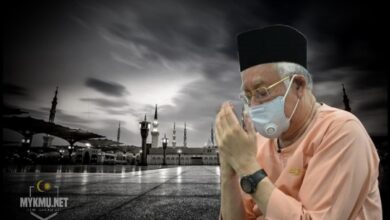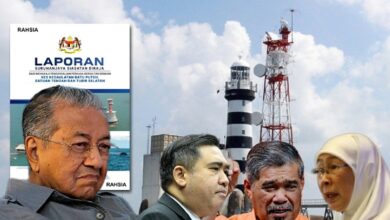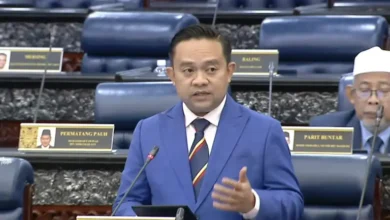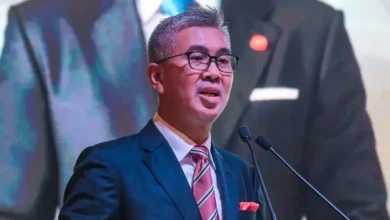Who really is Shafie and why does he oppose that MoU?
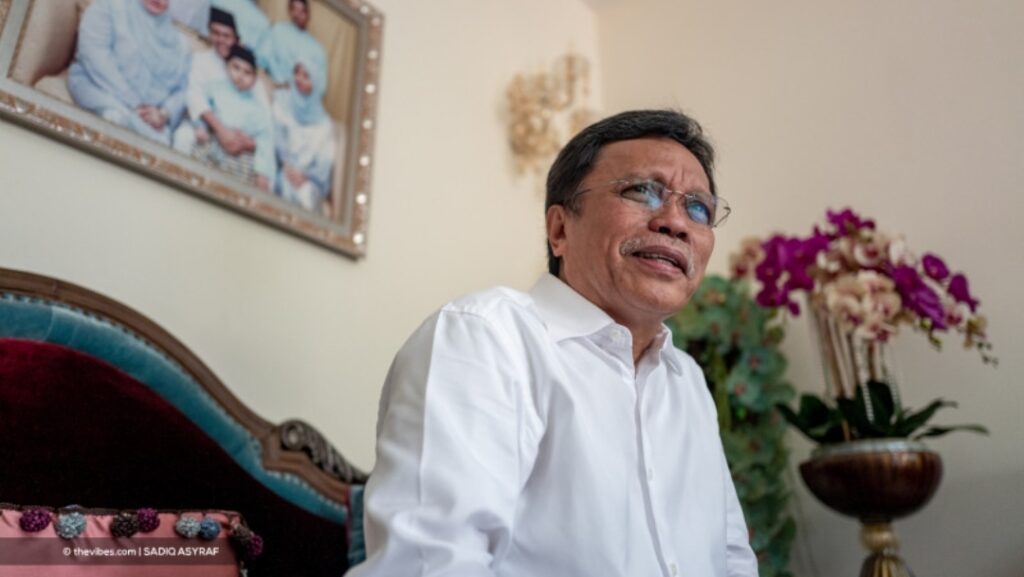
Who really is Shafie and why does he oppose that MoU?
By P. Gunasegaram
ARE those the values in our lives, Warisan chief Datuk Seri Mohd Shafie Apdal questioned.
The root cause was instability, he said a moment earlier. We are playing with numbers for human life, he went on.
Shafie was speaking in Parliament recently criticising Pakatan Harapan’s (PH) signing of a memorandum of understanding (MoU) with the government for reforms, which include lowering the voting age to 18, limiting the prime minister to two terms, introducing anti-party-hopping laws, and plans to control Covid-19 and revive the economy.
While he went on to talk about unrelated things, he did not make it clear why he was opposed to the MoU. Opposition leaders have repeatedly pointed out the MoU does not take the right away from opposition members to take a position against the government, but works with them where it is beneficial for the country.
His opposition to the MoU seems based solely on an objection to working with people who stole the mandate from the PH coalition, including Warisan, which backed the coalition post-2018 elections.
Shafie is now making this MoU a major issue to push ahead with his agenda of making himself a potential future leader, saying anti-party-hopping laws are unnecessary if politicians have values.
But it is precisely because politicians, including the likes of Shafie, do not have values that such laws are necessary. What are Shafie’s values with respect to some of these?
In his rant, Shafie conveniently did not mention that the expressed aim of the PH manifesto was that Tun Dr Mahathir Mohamad was to be an interim prime minister who will make way for PH chief Datuk Seri Anwar Ibrahim when the latter was ready.
It was Dr Mahathir’s blatant disregard of this which resulted in PH eventually losing power. And, it was Dr Mahathir’s attempts to position Shafie as an alternative to Anwar that made Shafie offer himself up as a candidate for PM. Now, who is vying for power?
Shafie is probably piqued that PH did not talk to him about the MoU ahead of the signing. But can PH be blamed for doing that? Despite their unanimous support for Anwar, Shafie baulked.
If Anwar did not get the numbers, he said, he wanted to have a go, forgetting that Anwar had support from 88 MPs at least and he had just eight, less than a tenth.
Does Shafie think PH would be stupid enough to accept such a deal for a person who not only has few parliamentary seats but lost the Sabah election to boot? In that event, he was unable to deliver Sarawak, showing himself to be a lightweight aspiring to be PM.
Shafie is clearly repositioning himself as one with values, using the example of the MoU signing but his arguments are not coherent and well argued, as in this interview with The Vibes.
He meanders on to other things and repeatedly does not answer the questions asked, which is the mark of an empty politician more intent on giving sound bites instead of substance. He speaks of himself as a person who is holding on to values. But is he? Let’s look at his track record further.
Race and religion
In a recent interview with a radio station, Shafie talked about ending the focus of politics on race and religion. But he was a member of the most racist party in Malaysia –Umno – from which he was expelled in 2005 after being a member for some 20 years.
The reason he was expelled was because of his constant raising of issues over then prime minister Datuk Seri Najib Razak. He criticised Najib’s close association with self-styled national strategic development company 1Malaysia Development Bhd (1MDB), which lost RM42 billion or more.
He was dismissed alongside Umno deputy president and then deputy prime minister Tan Sri Muhyiddin Yassin, who became PM after the notorious Sheraton Move.
Dr Mahathir had earlier been encouraging a revolution within Umno to remove Najib, which was led by Muhyiddin and Shafie, but this did not spread.
Thus, when Najib dismissed the duo, the rest of the Umno leaders fell in line and the government sustained until GE14 when it lost the elections. If the challenge of the Muhyiddin-Shafie duo had succeeded, then Muhyiddin would have become PM and Shafie would have seen his fortunes rise in Umno to, perhaps, even become deputy president.
One wonders what would have happened to Shafie’s current call for multiracialism then. For all the talk of values among politicians, Shafie’s call to multiracialism is motivated more by the need to reinvent his own values to make them more relevant, as I explained in this article.
Shafie needs to remember that multiracialism was there long before he became converted – PH’s three core members of PKR, DAP and Amanah are all multiracial parties.
The table below shows Shafie’ ascent along the political hierarchy.
There is no denying that he has a wealth of experience in politics/government and a pedigree to boot, being the nephew of the eighth chief minister of Sabah Tun Sakaran Dandai, who died of Covid-19 last month. He was a full minister from 2004 until his expulsion from Umno in 2015.
Post-2018
His political fortunes were revived after the 2018 election. It was a tense finish with nail-biting moments – 29 seats on either side. When Datuk Seri Jeffrey Kitingan brought his two MPs over to Tan Sri Musa Aman, and it looked like everything was over.
But then, there were six defections from the other side to Warisan, no doubt through enticements from Shafie, and he prevailed to become chief minister of Sabah. So, there you have it, Shafie was involved in party-hopping. Is that why he is against party-hopping laws?
Shortly after, in August 2018, a RM1.5 billion corruption charge hanging over his head was dropped because of insufficient evidence. The case is related to the alleged misappropriation of rural development funds in Sabah. It is not as if Shafie is untainted by scandal.
After the Perikatan Nasional (PN) coalition came into power in February last year, it moved against Shafie’s Sabah government. Soon after, money-laundering charges against former chief minister Musa were withdrawn, and there were defections that resulted in an alteration of the balance of power.
Instead of a confidence vote to settle the issue, Shafie dissolved the state assembly at the end of July. Yet again, the Sabah government was subject to change by party-hopping. That election led to the largest outbreak of Covid-19 in Malaysia then – all due to Shafie and the PN government.
Shafie lost the election quite soundly. That left him in the political wilderness, bereft of support in Sabah and no presence in the peninsula.
Datuk Seri Mohd Shafie Apdal suffered
Amazingly, he seems to think that he is an alternative leader eligible for the highest position in government – despite his low level of achievement!
First, he has little support – eight parliamentary seats, all in Sabah, do not make a prime minister.
Second, if he was running Sabah as chief minister, he would have some standing, although still insufficient. But he lost the elections – even Sabah does not support him as a leader.
Why, Sarawak Chief Minister Datuk Abang Johari Openg has a more valid claim than Shafie for the top position, going by his coalition’s consistent performance over the years.
Thirdly, Shafie not only has no support and standing to be prime minister, but he also has no stature as well. His rambling speeches that evade key questions do not inspire confidence and he does not speak authoritatively, rationally and sensibly on major issues.
If Shafie continues the way he does, he is not going to endear himself to his coalition partners. Without their support, his chances to regain Sabah in the next elections will plummet and put him into political oblivion.
You can’t hope to be a national politician without support from your own regional base TV
Who really is Shafie and why does he oppose that MoU?

